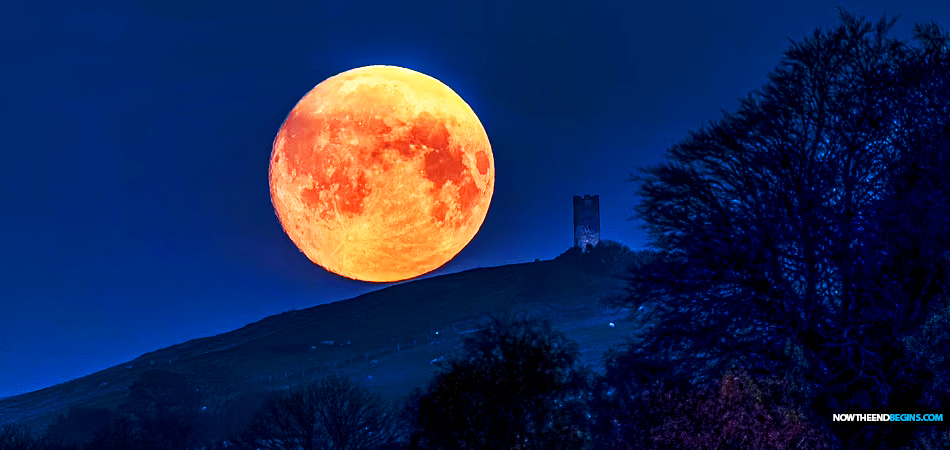
People across New Zealand and around the world stayed up Wednesday to watch a cosmic event called a super blood moon, a combination of a total lunar eclipse and a brighter-than-usual super moon.
Over the past ten years or so, Christian end times authors have enjoyed best-sellers writing about how the appearances of a blood moon in the night skies is a harbinger of the prophecies mentioned in Joel 2 in your King James Bibles. However, a careful reading, (or even a casual one for that matter) of what Joel actually said shows this not to be the case ten out of ten times.
"And I will shew wonders in the heavens and in the earth, blood, and fire, and pillars of smoke. The sun shall be turned into darkness, and the moon into blood, before the great and the terrible day of the LORD come. And it shall come to pass, that whosoever shall call on the name of the LORD shall be delivered: for in mount Zion and in Jerusalem shall be deliverance, as the LORD hath said, and in the remnant whom the LORD shall call." Joel 2:30-32 (KJB)
First of all, Joel is talking about a time after the Pretribulation Rapture of the Church known as the great Tribulation, so that cannot possibly be for us here in the Church Age. Secondly, Joel doesn't say that the moon turns the color of blood, but that the moon turns into blood just prior to the Second Advent when we return with King Jesus. Lastly, Joel says the the sun also goes dark when the moon turns to blood. Hmm.🤔 Now that is not what I would call 'deep theology', it's simply having the ability to read and understand words written at the 6th grade reading comprehension level. So that means that every book you've ever read about blood moons and Joel 2 does not match up with what the passage actually teaches, unless the person who wrote it is a rightly divider and dispensationally correct.
Buildup to super blood moon eclipses the finale
FROM THE AP: During the buildup, a glittering moon rose above the horizon. As the Earth’s shadow began taking bites from the moon, it created a dramatic effect. Half the moon vanished, leaving it looking like a black-and-white cookie. When the full eclipse took hold, however, the moon darkened, turning a smudgy burnt orange color for many viewers.
In celestial terms, it was a wonder: a projection of the world’s sunsets and sunrises onto the black canvas of the eclipsed moon. But for people peering up from their backyards, it wasn’t quite the brilliant display they’d anticipated. Not quite super or blood-colored.
“It was not that vivid for those on ground,” said Ben Noll, a meteorologist with New Zealand scientific research agency NIWA. “Personally, I thought there would be a bit more red in the sky.”
Still, Noll thought that overall, the evening was sensational. He heard plenty of people cheering and cars honking in downtown Auckland where he watched it all unfold.
John Rowe, an educator at the Stardome Observatory & Planetarium in Auckland, said it was like the moon turned into a big, spooky smile looking down at him. That’s because of a bright rim that remained at the bottom. Rowe also enjoyed seeing surrounding stars appear to brighten as the light from the moon dimmed.
The full eclipse lasted about 15 minutes, while the whole cosmic show lasted five hours. A partial eclipse began as the moon edged into the Earth’s outer shadow, called the penumbra, before moving more fully into the main shadow and then reversing the process.
Rowe likes to imagine it as if he’s standing on the moon. The Earth would come across and block out the sun. The reddish light around the edges would be the sunsets and sunrises happening at that time on Earth, projected onto the moon’s surface. Pretty cool, he reckons. READ MORE
No comments:
Post a Comment